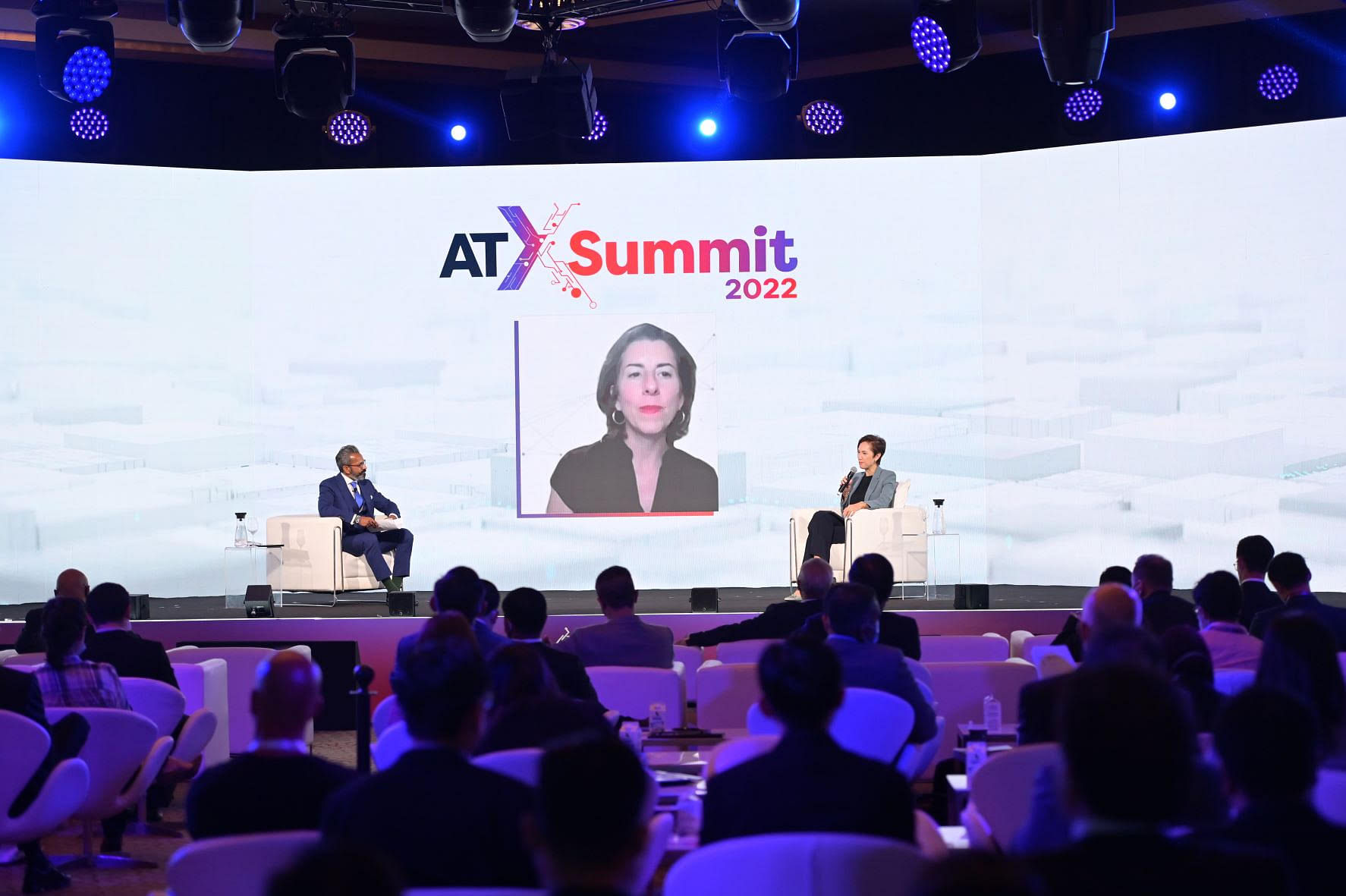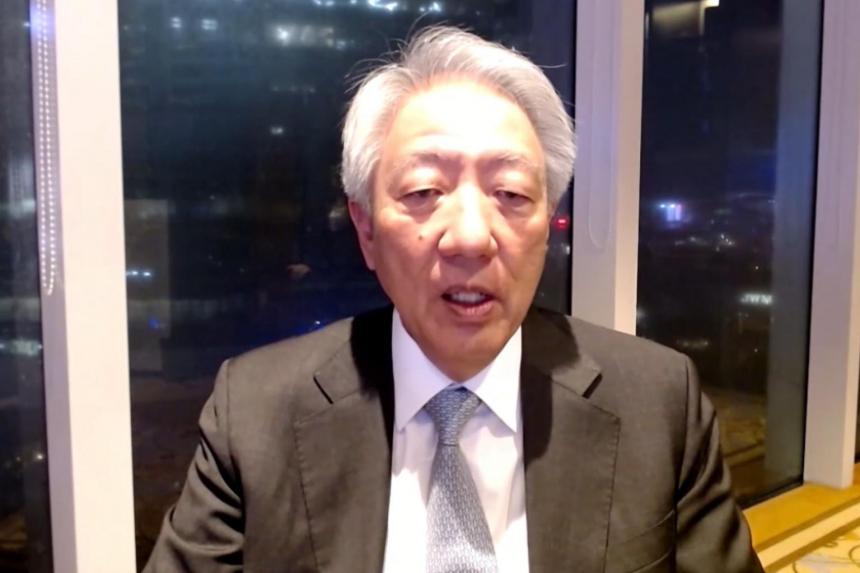SINGAPORE - Countries should work together to develop common global rules, norms and standards so that online interactions across societies can be stable, secure and consistent, said Senior Minister Teo Chee Hean on Tuesday (May 31).
This will mean that "consumers and businesses will benefit from reduced compliance costs, easier market access, and better and more affordable services", said Mr Teo, who is also Coordinating Minister for National Security.
This is amid concerns that the digital world could splinter if countries make their own rules or group into different blocs, as they seek stronger protection on the use of data and greater oversight of digital services.
Mr Teo was speaking virtually from Hong Kong, at a Gardens by the Bay dinner held in conjunction with the Asia Tech x Singapore Summit organised by the Infocomm Media Development Authority.
Mr Teo is in Hong Kong on a work trip.
Even if major countries cannot reach consensus on rules, small states can still act, he said. For example, like-minded countries can work together on digital economy agreements that align digital rules and standards.
"These will facilitate greater interoperability with protocols, gateways and bridges between digital systems for cross-border digital trade and data flows," he said.
In Singapore's case, it has concluded four digital economy agreements with Australia, Chile, South Korea, New Zealand and Britain.
"It will not be easy to arrive at a global consensus, but we must take steps to get there," said Mr Teo. "Singapore supports the creation of such a multi-lateral order in cyberspace. We will work together with all stakeholders in this endeavour."
For example, Singapore's permanent representative to the United Nations in New York, Mr Burhan Gafoor, was elected as the chairman of the five-year Open-Ended Working Group on the security and use of infocomm technology.
Singapore is also one of 13 initial countries that expressed support for a new United States-led Asia-Pacific trade initiative called the Indo-Pacific Economic Framework for Prosperity, which United States President Joe Biden launched on May 23.
The initiative intends to establish common standards in areas such as supply-chain resilience and clean energy.
Minister for Communications and Information Josephine Teo said on Tuesday that Singapore believes "this continued engagement of the US in our part of the world is a positive development, and we certainly hope to build on its initial ideas to grow it further".
She said that Singapore appreciates that the framework will be kept open, inclusive and flexible.
"If we can build on these as the core elements and the founding principles of (the framework), then I think its potential is very commendable, very enormous," said Mrs Teo, at a dialogue with US Secretary of Commerce Gina Raimondo at the Asia Tech x Singapore Summit. The event was held at The Ritz-Carlton, Millenia Singapore.

In navigating the digital environment, especially in setting out rules, Mrs Teo said, international agreements are a great start and give businesses more certainty.
"(Businesses) need to know what are the boundaries that they must operate within. And without a certain set of common standards... it's quite challenging," said Mrs Teo.
"If we don't make a conscious and deliberate effort at the international level to bring about some standardisation of rules... then, I think, over time, the potential for growth and innovation will also be impeded."
There are also concerns that online platforms by Big Tech companies - including Apple, Amazon, Alphabet, Facebook and Microsoft - have a substantial influence on what consumers see and buy, as well as the information and news they get.
Senior Minister Teo cited the example of extreme views that could be finding greater traction than moderate ones and can affect "social cohesion and consensus building as society becomes increasingly polarised within their own echo chambers".
"The solution is to work with, and not against Big Tech," he said. "Governments also need to work with Big Tech to devise governance principles and rules that reflect this new power alignment and achieve better balance."
New ways and standards to maintain the security and resilience of digital systems also need to be developed by governments and industry players.
This will encourage consumers and businesses to be more willing and ready to embrace the benefits of new technological innovation, and have confidence that they will be secure and that their privacy will be respected and protected, said Mr Teo.
"The digital world has grown so big and pervasive that we now need to have this conversation between governments, businesses and consumers to assess whether our policies are still fit for purpose, and how best to go about realising our collective vision of creating a more integrated, open and secure digital world," he said.


